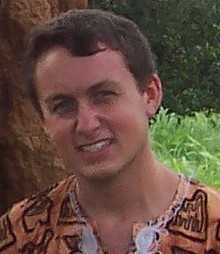Childhood Diarrhea
Diarrhea in children. Something that certainly is common in the United States, as evidenced by the number of cases of rotavirus gastroenteritis that I saw during my inpatient pediatrics rotation. In the United States, however, many children will experience brief episodes of viral or bacterial gastroenteritis during their childhood. These children are often treated as outpatients with oral rehydration and other supportive care, and even the fraction that require inpatient hospitalization, due to an inability to maintain adequate oral hydration, ultimately do quite well, generally recovering quickly over a few days.
The story is quite different in other parts of the world. I think of Guinea-Bissau, a country close to my heart as a result of parts of three summers spent there as a volunteer missionary. In Guinea-Bissau last year, a cholera epidemic resulted in 25,111 cases of severe watery diarrhea, with at least 399 deaths in less than 6 months [1]. While epidemics such as this recent cholera outbreak often are the only episodes of diarrheal illness that will even make the news (and even then often only international news websites, rather than major US news outlets), the topic which I'll be studying over the next year has an even greater impact on morbidity and mortality in developing countries than these intermittent epidemics. I'll be involved in research that investigates the long-term effects of chronic diarrhea in children. Mortality due to diarrheal illnesses has dropped significantly over the past few decades due to the impact of oral rehydration therapy, but the morbidity of chronic childhood diarrhea continues to rise. Mortality still remains in the neighborhood of 2 million deaths worldwide due to diarrheal illness in children. Children who experience chronic diarrhea in early childhood perform worse in school years down the road, secondary to impaired cognitive development in their early years. These children also experience growth shortfalls, and impaired physical fitness and cognitive function [2].
Over the next year, I will be working in an NIH funded laboratory in Fortaleza, Brazil with the research group of Dr. Richard Guerrant, also of the University of Virginia. In addition, I will also spend time in the University Hospital, seeing illnesses that are uncommon in the United States and observing differences in how medicine is practiced in less developed countries, something that will hopefully prepare me well for future medical work abroad. I will not be the only medical student in Fortaleza over the next year, as I will be joined by another Fogarty fellow, and likely by 1 or 2 UVA School of Medicine classmates who are hoping to spend a year in Fortaleza on Pfizer grants through the School of Medicine. We'll each be working on different aspects of the research on chronic diarrhea in children, with projects ranging from cognitive function testing to pedigree analysis to integration of PCR diagnostic tests for common pathogens. In future posts, I'll talk a bit more about the research that we'll be involved in, and the clinical opportunities that we'll have, as well as a bit more about Fortaleza.
References:
1. http://www.irinnews.org/report.asp?ReportID=50859&SelectRegion=West_Africa&SelectCountry=GUINEA-BISSAU
2. Guerrant, RL, Kosek, M, Moore, S., Lorntz, B., Brantley, R., and Lima, AAM. (2002) Magnitude and Impact of Diarrheal Diseases. Arch. Med. Res. 33:351-355.



